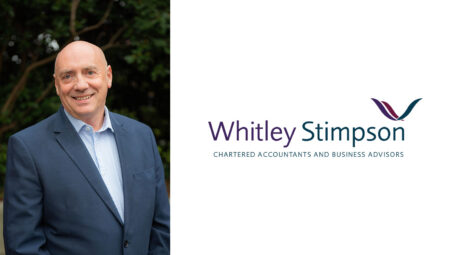
The Audit/Independent Examination of Charities
For many charity trustees the rules and regulations around audit and independent exams can seem a complicated subject. Having worked with many different charitable organisations over the years I am often asked what level of scrutiny are we as a charity required to have, so I hope the below will go someway to helping answer […]
For many charity trustees the rules and regulations around audit and independent exams can seem a complicated subject. Having worked with many different charitable organisations over the years I am often asked what level of scrutiny are we as a charity required to have, so I hope the below will go someway to helping answer that question.
Determine your charity size/structure
To understand whether your charitable organisation is required to have an audit or independent examination you must first ascertain your charities size and circumstances. Charities are commonly registered with (and regulated by) the Charity Commission (CC). As a registered charity in England and Wales there are various exemptions from tax etc. available, but charity trustees have a responsibility to be transparent in their financial reporting and are subject to a level of scrutiny.
To understand how the accounting requirements apply to a charity the Trustees need to check:
1. The structure of the charity e.g. whether it is a company or Charitable Incorporated Organisation (CIO)
2. The income for the current financial year
3. The value of its assets
4. Whether or not it is required to be registered as a charity.
Trustees should then establish:
1. What type of accounts should be prepared
2. What type of information is needed in the Trustees’ Annual Report
3. Whether the accounts need an independent examination, or audit
4.What information must be sent to the Charity Commission.
Does the charity need an audit or independent exam?
Under the Charities Act, typically a charity will need an independent examination if its income exceeds £25,000 per annum, or an audit if its income exceeds £1 million per annum. As is often the case though, matters are more complicated than this, for example an audit will also be required if:
1. Total assets exceed £3.26million and income exceeds £250,000,
2. The charity’s Governing Document requires the charity to have an audit; or
3. If 10% of members have lodged a request for an audit.
4. If income is lower than £25,000 then no scrutiny is required, although all charities are still required to generate annual accounts whether registered with the CC or not, and these accounts must be made available on request.
How does our structure affect our need for an audit/independent exam?
There are various vehicles under which a charity can operate. In addition to being formed as a ‘normal’ charity:
1. An ‘excepted’ charity is regulated by the CC but not required to register with them. The usual rules on independent examination/audit apply to these charities.
2. An ‘exempt’ charity cannot register with the CC and is not directly regulated by the CC but will have a principal regulator. These charities will need to prepare proper accounts and have a level of scrutiny in accordance with the rules of their regulator.
3. Some charities are formed as a charitable incorporated organisation (CIO). A CIO has to file accounts with the CC whatever their level of income but has no requirement to file accounts with Companies House. An audit will be required if gross income exceeds £500,000, or gross assets exceed £3.26 million and gross income exceeds £250,000.
4. Charities can also be a company and therefore must be registered and filing accounts with companies house. The rules for audit/independent examination also apply here however there are different (higher) thresholds for an audit under the Companies Act. There are small differences between an audit under the Companies Act and Charities Act. If a charitable company is entitled to the small companies audit exemption under the Companies Act 2006, but requires an audit under the Charities Act 2011, it can be audited under the Charities Act, but will need a Companies Act audit exemption statement on its balance sheet. However it is common just to carry out an audit under the Companies Act.
Whether a charity is part of a group will need to be considered because the accounting and examination regime will apply to the group as a whole.
Some charities prefer to have an audit or independent examination when not required to, to show that the general public can see that the accounts are being properly scrutinised.
Audit vs Independent Examination
The difference between an audit and an independent examination is the level of scrutiny involved.
An independent examination involves a scrutiny of the charities accounts under the General Directions, which are a set of procedures which must be followed by the examiner. There are 13 required Directions to comply with for an independent exam (1).
The examiner is only required to confirm whether any material matters of concern have come to their attention, whilst an auditor is required to provide an opinion on whether a charity’s accounts give a ‘true and fair’ view.
An audit will provide a deeper level of scrutiny into the accounts in accordance with International Auditing Standards. As a comparison of the two, an independent examination will:
1. Check whether the charity has kept proper accounting records
2. Check whether accounts comply with accounting requirements and accord with the records
3. Review the records kept by the charity and compare the accounts with those records
4. Review the accounts and consider any unusual items or disclosures.
Whilst an audit will:
1. Check whether the accounts give a true and fair view of the financial affairs
2. Check whether the accounts have been properly prepared in accordance with accounting practice and relevant law
3. Go further than an independent examination and verify whether the accounting records are correct and complete. As part of this the auditor will take samples to confirm the accuracy of the records as well as reviewing the organisation’s financial systems.
4. Go into more depth than an independent examination and will therefore cost more.
This is only an overview of the position but I hope it will clarify your charities requirements with regards to an audit or independent exam. For more detailed advice specific to your organisation please contact me or email hello@wenntownsend.co.uk.
Graham Cole FCA, Partner
(1) Details on the Directions can be found in the ‘Independent examination of charity accounts: Directions and guidance for examiners (CC32)’ guidance document from the Charity Commission
More in Professional Services

New R&D Tax Relief regulations could leave thousands of businesses at...
In a recent development, tens of thousands of businesses are facing the risk of missing out on crucial Research and Development (R&D) tax relief due to new pre-registration requirements.

Welcome to our new Consultant Solicitor Simone Brown
BH&O are thrilled to welcome Simone to the team this week. She comes to us fresh from working with the Joint Legal Team in Reading and Berkshire Councils, where she was specialising in childcare and child protection and adoption work, but before that she had worked at a number of firms undertaking matrimonial finance and private children work.

Experts urge businesses to beware of latest VAT changes
Business owners registered for VAT are being reminded to make sure they file their returns and pay on time or face falling foul of new penalties introduced by HMRC.
From this author

Energy Bill Relief Scheme launched
The Business Secretary Jacob Rees-Mogg has announced the launch of the new Energy Bill Relief Scheme to help cut energy bills in the non-domestic sector. The new scheme will cover all non-domestic energy customers, including UK businesses, the voluntary sector, for example charities and the public sector such as schools and hospitals.

How the VAT Reverse Charge works
The VAT domestic reverse charge accounting mechanism was put in place to help prevent criminal attacks on the UK VAT system by means of sophisticated fraud.

Small Business rate relief
Business rates are charged on most non-domestic premises, including most commercial properties such as shops, offices, pubs, warehouses and factories. Some properties are eligible for discounts from the local council on their business rates. This is called business rates relief. There are a number of reliefs available including small business rate relief, rural rate relief and charitable rate relief.


